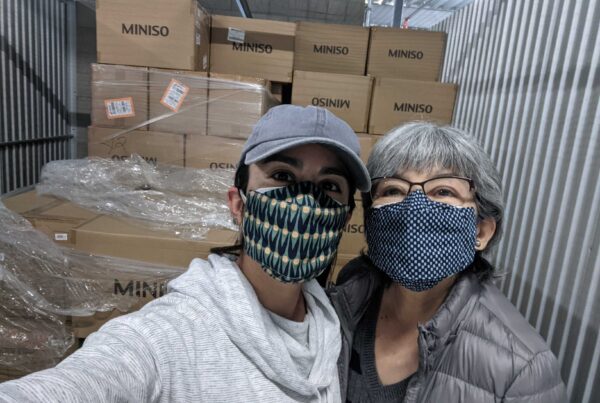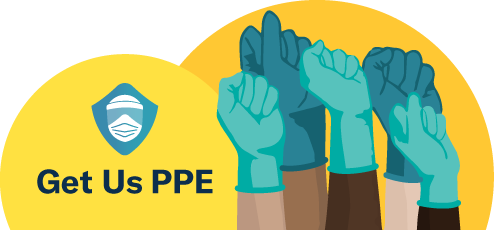Authored by Joanna Calderon, MPH, Jacqueline Chan, MPH, Dan Lurie
Since the beginning of the COVID-19 pandemic, Get Us PPE has been working with experts from medicine, public health, and other fields to develop strategies that support health equity. Our mission is to help donations of personal protective equipment (PPE) go where they are needed most. Key to these efforts is our Fairness Framework, a data-driven and health equity-centered approach that considers long-standing health disparities, resource availability, and current COVID-19 trends to facilitate fair and efficient PPE distribution.
This blog provides an overview of COVID-19 health inequities and how Get Us PPE is working to address them. Future blog posts will provide a more detailed look into the topics we introduce here.
Inequitable health impacts of COVID-19
We have witnessed the devastating impacts of COVID-19 in the U.S. and around the globe, with the largest effects experienced by historically marginalized communities. The current pandemic has magnified well-documented health disparities in the United States and brought them to greater national awareness. COVID-19 has also put even more strain on the already under-resourced healthcare systems that serve these communities. As stated by the CDC, this pandemic highlights “longstanding inequities that have systematically undermined the physical, social, economic, and emotional health of racial and ethnic minority populations and other population groups that are bearing a disproportionate burden of COVID-19.”
COVID-19 is affecting Black, Indigenous, Latinx, and other people of color at disproportionate rates. Marginalized racial and ethnic groups and other population groups are experiencing higher rates of infection, hospitalization, and death compared to their white counterparts. Essential jobs in work settings such as healthcare facilities, grocery stores, public transport, farms, and warehouses are disproportionately filled by marginalized racial and ethnic groups. Additional populations experiencing a disproportionate burden of COVID-19 include incarcerated populations, people experiencing homelessness, and people living in rural areas.
COVID-19’s inequitable impact is the result of social, political, and economic forces that have and continue to systematically marginalize, under-resource, and harm certain populations across multiple generations. Factors that impact health disparities include discrimination, racism and white supremacy, economic and educational inequality, place-based factors, occupation, housing, and healthcare access and utilization.
Get Us PPE’s commitment to health equity
From the beginning, Get Us PPE has been focused on health equity. We take steps to not reproduce the same patterns that systemically under-serve and marginalize particular communities and populations. In practice, this means we distribute PPE to under-served communities and frontline healthcare workers and others serving these communities, with the ultimate aim of reducing health disparities. In addition, we continue to conduct outreach to under-resourced areas that face barriers to accessing health resources and information.
Distributing PPE equitably using the Fairness Framework
Get Us PPE has developed a data-driven approach for equitable allocation of PPE, which we named the Fairness Framework. The methodology draws from multiple data sources to inform equitable and efficient distribution of scarce PPE supplies. Our methods are regularly refined based on the latest available science, data, and public health research. The Fairness Framework incorporates both population- and place-based approaches for identifying facilities and communities that bear a disproportionately higher risk of COVID-19 infection, severe illness, and death. Specifically, it assesses each PPE request based on the following three domains:
- Exposure: Likelihood of exposure to COVID-19
- Urgency: Level of urgency and scarcity of PPE experienced by the facility
- Population Risk: Presence of populations at disproportionately high risk of COVID-19 illness or death.
Data across all Fairness Framework domains are summarized in a standardized composite score, which we call the Health Equity Factor. The Health Equity Factor is then analyzed alongside logistical data to determine an allocation that balances health equity with logistical constraints, such as delivery distance and shipping cost.
Looking forward
At Get Us PPE, our mission is to get donated PPE to those who need it most. As of this writing, Get Us PPE has distributed 5.5 million pieces of PPE to healthcare facilities and communities throughout the US. We will continue to focus on health equity in our PPE distributions with the aim of reducing health disparities during the COVID-19 pandemic. In future blog posts, we will provide a more detailed look into how the Fairness Framework is implemented.




